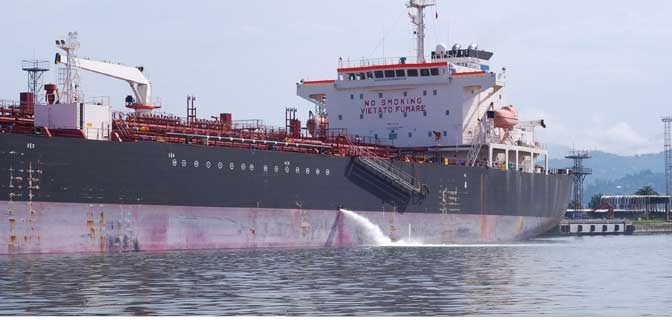IMO announced that Saudi Arabia has become the latest State to become a Party to the Ballast Water Management (BWM) Convention. The treaty, that will enter into force on 8 September 2017, aims to counter the threat to marine ecosystems by potentially invasive species transported in ships’ ballast water.
The number of contracting Parties to the BWM Convention now stands at 55, representing 53.67% of world merchant shipping tonnage.
Saudi Arabia deposited its instrument of accession with IMO on 27 April 2017.
Since the introduction of steel-hulled vessels around 120 years ago, water has been used as ballast to stabilize vessels at sea. Ballast water is pumped in to maintain safe operating conditions throughout a voyage. This practice reduces stress on the hull, provides transverse stability, improves propulsion and manoeuvrability, and compensates for weight changes in various cargo load levels and due to fuel and water consumption.
While ballast water is essential for safe and efficient modern shipping operations, it may pose serious ecological, economic and health problems due to the multitude of marine species carried in ships’ ballast water. These include bacteria, microbes, small invertebrates, eggs, cysts and larvae of various species. Untreated ballast water released at the ship’s destination could potentially introduce a new invasive marine species.
The International Convention for the Control and Management of Ships’ Ballast Water and Sediments (BWM Convention) was adopted in 2004 to introduce global regulations to control the transfer of potentially invasive species. Once the treaty enters into force, ballast water will need to be treated before it is released into a new location, so that any microorganisms or small marine species are killed off.
“The entry into force of the Ballast Water Management Convention will not only minimize the risk of invasions by alien species via ballast water, it will also provide a global level playing field for international shipping, providing clear and robust standards for the management of ballast water on ships” has explained IMO Secretary-General, Kitack Lim.




























































